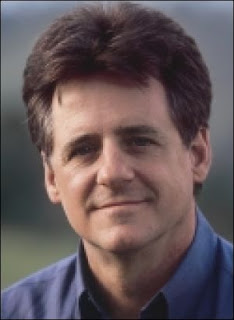Note: Sadly, Blaize Clement lost her battle with cancer in July, 2011, at the age of 78. She was a strong, courageous woman and the epitome of a Fabulous Florida Writer. Her spirit will live on through her wonderful books.
For Sarasota writer Blaize Clement, there were few things more fascinating than people and animals. When she was a child, she loved reading stories about the intelligence and nobility of animals. As an adult and a psychologist, she enjoyed uncovering the true stories of people’s lives. And as a writer, Clement found a way to combine these two interests in her popular Dixie Hemingway Mystery Series, the tales of a professional pet-sitter who finds herself immersed in intrigue and danger. Though her books have been praised for their entertaining stories and memorable characters, Clement believed they had something more to offer. “Dixie is a woman who has had some bad things happen, but is doing her best to move on and help others,” she explained. “I’d like readers to come away from my books with the idea that whoever they are, whatever they do, they’re fine just the way they are. I’m hoping to impart that we can all live together despite our differences. And pets, with their unconditional love, illustrate this.”
Although Clement did not set out to become a writer, she always knew there was one waiting in her future. As a young girl growing up on a farm in north Texas, she could envision herself with gray hair, sitting at a manual typewriter, watching the surf break on the shore. “I don’t know where that image came from, but I’ve had it for as long as I can remember,” she said, “and I just knew the day would come when I would do that.” So when her two sons were grown, Clement began to write. Her experience writing textbooks and expert witness reports helped lay the foundation for her fiction writing. According to Clement, “I’d learned how to sift through information to find the narrative thread. People’s lives have narratives too, and finding them ties into being a mystery writer.” In 2006, she published her first novel, Curiosity Killed the Cat Sitter, which was praised by Booklist as “a first-rate debut.”
The success of Curiosity Killed the Cat Sitter spawned five more mysteries featuring Dixie Hemingway, a former sheriff’s deputy who leaves her job after a family tragedy to become a pet sitter. Clement infuses her protagonist with pluck and humor while utilizing her background in psychology to give Dixie depth and dimension. There are also some wonderfully rendered animal characters that will keep the reader chuckling. The fourth book in the series (Cat Sitter on a Hot Tin Roof) was a finalist for the Mary Higgins Clark Award.
Clement’s upbeat and lighthearted writing belied a life marred by personal tragedies. A bout with polio in her twenties left her unable to walk unassisted. A divorce left her the single mother of two small sons. Defying the odds, Clement put herself through college to become a successful clinical psychologist. Her life seemed to be getting back on track when she was tipped from her wheelchair while being wheeled down an airport jetway, breaking her leg and giving rise to a host of physical complications. No longer able to continue her psychology practice, Clement went to France to recover her health. She returned to the states in 1997 and settled in Sarasota, which became the setting for the Dixie Hemingway series.
Clement’s trademark tenacity continued right up to the end of her life. She spent her final weeks working on the seventh and eighth Dixie Hemingway novels. Before her death, she managed to finish the editing of The Cat Sitter’s Pajamas, (scheduled for publication in mid-January, 2012). She has entrusted her son John with completing the final book, providing him with the first several chapters and a detailed outline, and leaving her readers with a special gift that will keep her memory alive.
Clement believed that people can learn a lot from their animal friends. To her, the relationship between pets and their owners is one of the best examples of unselfish love, and the way animals get along with one another can teach us how to live in harmony. This is the premise for the world she’s created in her books. And Clement often found herself wishing the real world was more like hers.
For more about Blaize Clement, you can visit her website at www.blaizeclement.com
Next: Drs. Chris Cortman and Harold Shinitzky: Knowing Your Own Mind
Next: Drs. Chris Cortman and Harold Shinitzky: Knowing Your Own Mind











